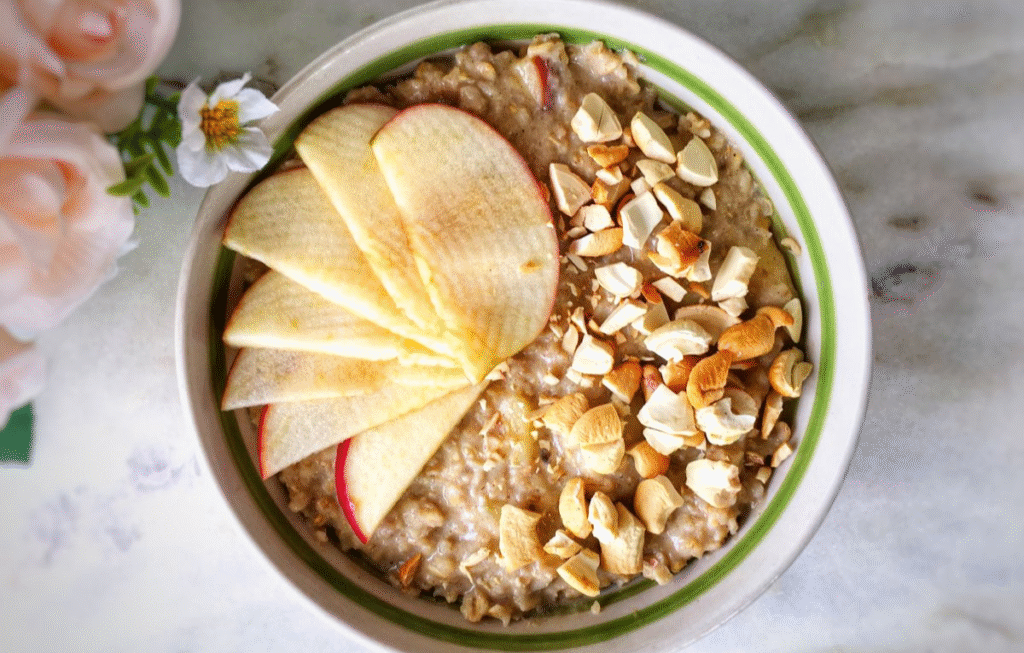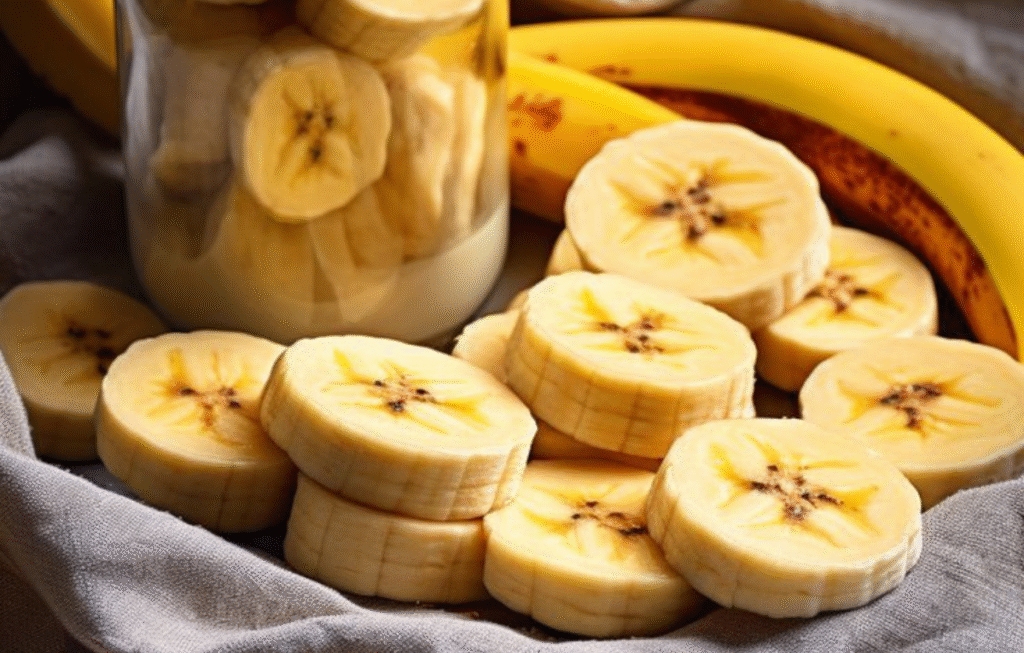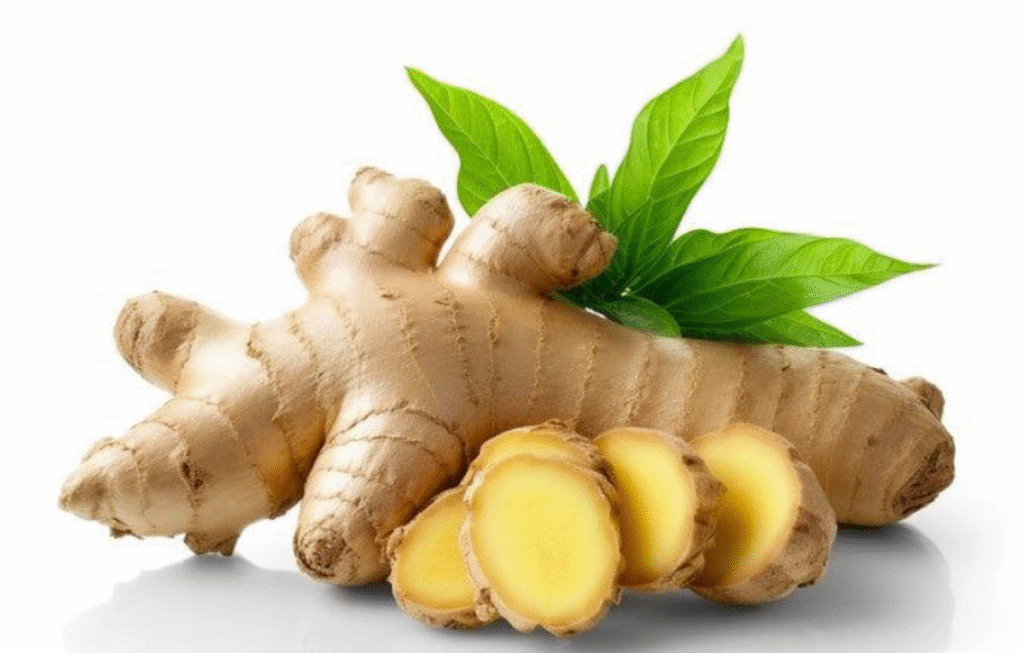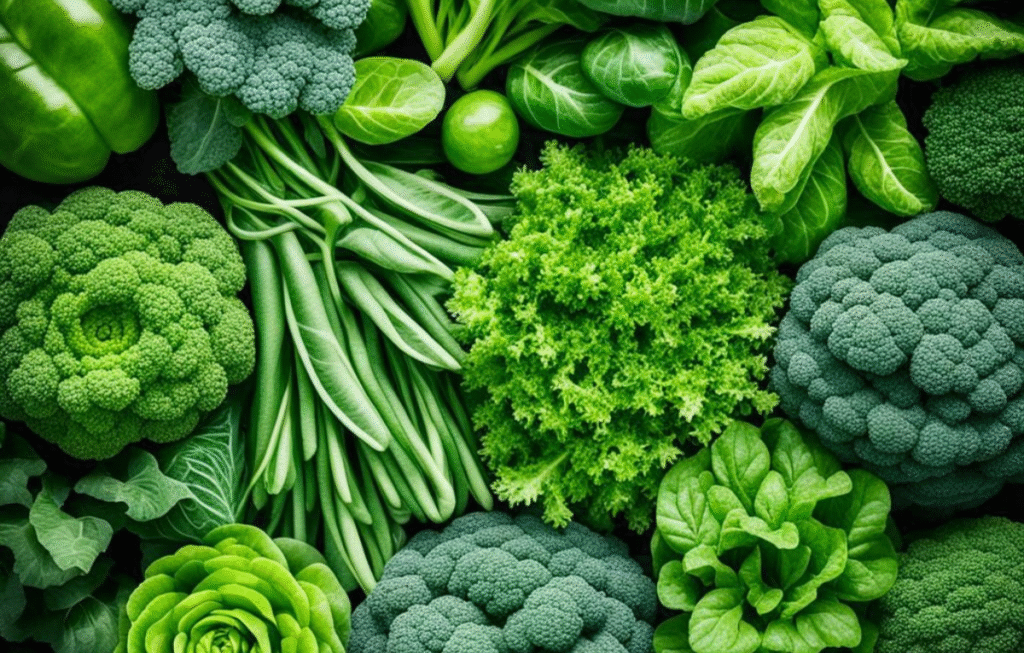Have you ever experienced a sensation of burning or pain in your chest after eating a meal that is rich or after reclining? If so, you are one of millions who experience acid reflux and heartburn on a daily basis. These conditions are not only uncomfortable but can interfere with sleep, digestion, and your quality of life if left untreated.
The good news is that you may not need to resort to medications. Our food, and what we eat, plays an important role in managing acid reflux. There are several natural foods that relax the stomach, assist with digestion, and help lower acidity in the body.
Let’s explore 4 of the best natural foods for controlling acid reflux and heartburn, and how to incorporate them into your diet each day.
1. Oatmeal – The Gentle Morning Healer

If you want to start your day with a healthy and light diet, you should go for oats. Oats have gained the nickname “superfood” mainly because they do not only fill you up for a long time but also make heartburn and acid reflux symptoms more tolerable.
Why Oatmeal Helps:
Oats are a high-fiber whole grain that can absorb the excess acid in the stomach. Fiber guarantees easy digestion and impedes the very cause of acid reflux, which is overeating. Besides, oats have almost no fat at all that could hinder the acid formation in the stomach and make it slower.
Acid reflux is a condition where the stomach acid comes up into the esophagus. Oats serve as a barrier against this because they do not relax the lower esophageal sphincter (LES). The LES is the muscle that prevents the acid from moving upwards in the stomach.
How to Include Oatmeal in Your Diet:
- For Breakfast: Have plain oats prepared with either water or low-fat milk.
- Topping: Top with light pieces of fruit like bananas, apples, or blueberries.
- As a Snack: Prepare overnight oats soak oats in almond milk and chia seeds overnight and eat them cold in the morning.
Pro Tip
Stay away from flavored or instant oats that are available in the market since they are loaded with sugar and artificial ingredients that will worsen/acidity. Always go for plain rolled or steel-cut oats.
More about it:
Herbal tea (chamomile or ginger) with oats is a great substitute if you do not want to drink your morning tea or coffee. The pair is very soothing for the stomach.
2. Bananas – Nature’s Antacid

Banana is a fruit usually found in every single home and is considered a “natural antacid.” This means it is capable of neutralizing stomach acid without the use of drugs.
Why Bananas Help:
Bananas are a super fruit that comes with no acidity at all and so no irritation. They are like a protective barrier on the stomach that prevents the acid from getting contact with the stomach lining.
Also, the fiber contained in bananas, pectin, helps digest the food, and quickens the process so no food stays in the stomach long enough to cause acid accumulation hence reducing the risk.
Along with this, potassium in bananas takes care of the body’s pH and the balance of electrolyte. This is how acidity is lowered naturally.
How to Include Bananas in Your Diet:
- As a snack: Have a banana in between meals.
- In a smoothie: Blend banana, almond milk, and a small portion of oats to get a delicious and healthy smoothie.
- For breakfast: Add banana slices on oatmeal or whole grain bread, and then just a little bit of peanut butter on top.
Pro Tip
Bananas that are past their best (those with brown spots) are a bit acidic to some. If you are the one having reflux issues often, then only go for the ripe but firm ones.
More about it:
You had a spicy lunch in the afternoon and suffering from heartburn; the first thing you should do is eat a banana. It might take half an hour but then you will not have the discomfort anymore. Bananas soothe the stomach and at the same time they are doing the opposite of acid – naturally.
3. Ginger – The Soothing Root for Your Gut

Ginger is a well-known but excellent spice in the Indian cuisine. Besides improving the taste of food, it is very effective in curing digestive problems like gas, nausea, indigestion, and acid reflux.
Why Ginger Helps:
Ginger has anti-inflammatory property that stops inflammation in the stomach and protects against acid reflux. In addition, ginger aids in quicker digestion in the stomach leading to lesser chances of reflux.
Gingerols, the active compound in ginger, help relax the stomach muscles and boost the digestive system. Moreover, ginger encourages saliva flow which helps to neutralize acid.
How to Include Ginger in Your Diet:
- Ginger Tea: Tie ginger slices in water for 10-15 minutes and sip it slowly.
- In Food: Add grated ginger to your vegetables, soups, or lentils.
- In Smoothies: Make an anti-acid smoothie by blending ginger with yogurt and banana.
Pro Tip
Do not exceed 2 to 4 grams of ginger per day. The intake of large amounts of ginger may cause a slight burning sensation in some people.
More about it:
If you experience morning heaviness and gas, start drinking a cup of warm ginger tea on an empty stomach every day. You will notice a change in just a few days.
4. Green Vegetables – Light, Alkaline, and Nutrient-Rich

Green vegetables are not only nourishing but have also been proven to be effective in reducing acidity in the body. They contain little fat, no sugar, and a lot of fiber that neutralizes the pH in the stomach.
Why Green Vegetables Help:
Green veggies like spinach, broccoli, kale, bottle gourd, and beans lighten the body and help in the absorption of food. The antioxidants and phytonutrients in green veggies strengthen the stomach and control the release of acid.
Moreover, they are loaded with fiber which cleans your stomach and makes the digestion of food easy. The less your stomach works, the less the acid is likely to be produced.
How to Include Green Veggies in Your Diet:
- Light Stir-Fry: Spinach or kale lightly stir-fried in a small quantity of olive oil and garlic.
- Soup: Add broccoli, gourd, or ridge gourd to your soup.
- Salad: A light salad of cucumber, lettuce, beans, and a few chickpeas.
Pro Tip:
Don’t cook veggies too much. Spicy or deep-fried vegetables may irritate acid reflux.
More about it:
When you need a light dinner, green vegetable soup is perfect—it will calm your stomach and ensure you a good night’s sleep.
Bonus Tip: Stay Hydrated and Mindful
Acid reflux sometimes just means the body is lacking water. If the body is dehydrated, stomach acid gets thicker and that makes heartburn worse.
Drinking water in small amounts throughout the day is very important. However, keep in mind that consuming a lot during meals is not recommended as it fills up the stomach and causes acid to come up.
Proper Technique:
- Water should be consumed 30 minutes prior and 1 hour post eating.
- The best options are: plain water, mint or cucumber infused water, and herbal tea.
- Soda, cold drinks, and citrus juices, which are high in acid, should be avoided.
Tips for Eating to Prevent Acid Reflux
- Feed the stomach with small bites; do not refill it up with too much food at a time.
- Do not lean back right after a meal; let’s have a break of at least 2 hours.
- Be patient and go through the process of eating and swallowing thoroughly.
- Diminish spicy, fried, and acidic foods.
- Watch over your weight. An overweight person puts excess pressure on the stomach which can lead to acid rising.
- Uphold your head while sleeping. This will prevent acid reflux.
Foods and Drinks to Avoid During Acid Reflux
- Coffee and tea (both caffeinated)
- Chocolate
- Greasy and fried foods
- Citrus fruits like lemons and oranges
- Tomatoes and tomato sauces
- Soda (soft drinks)
- Alcohol
All bodies are different and for that reason, a food diary may help to know what your body cannot stand. You’ll know your trigger foods.
Natural Home Remedies for Quick Relief
- Aloe Vera Juice: A small amount of (food-grade) aloe vera juice with meals can help inhibit the bacteria that cause stomach gas.
- Chamomile Tea: Helps to calm the stomach and reduce stress, which can be a major contributor to acid reflux, allowing the stomach to relax and reduce stress.
- Chewing Gum: Produces saliva, which neutralizes acid and soothes irritation.
Conclusion
Reflux and burning of the esophagus are not serious issues but if left unaddressed can lead to chronic problems. Making dietary and lifestyle changes can prevent this problem without medication.
Try to have something daily that contains nuts, bananas, ginger, and green veggies. Those four foods contain what most likely are your stomach’s favorite foods. Not only do those four foods calm acid but they promote digestion, would relieve bloating, and provide energy.
FAQs:-
What foods are best for relieving acid reflux naturally?
Foods like oatmeal, bananas, ginger, and green vegetables can soothe your stomach and reduce acid reflux symptoms naturally.
Should I avoid citrus fruits if I have acid reflux?
Yes, citrus fruits like oranges and lemons can increase acidity and worsen heartburn symptoms.
What lifestyle habits help prevent acid reflux?
Eat smaller meals, avoid lying down after eating, maintain a healthy weight, and limit caffeine and alcohol.
Medical Disclaimer
The information provided on Health Tips India is intended for educational and informational purposes only. It should not be considered a substitute for professional medical advice, diagnosis, or treatment.
Always consult a qualified healthcare professional before making any health-related decisions or changes to your diet, exercise, or medical routine.
SamhithaHealth & Wellness Content Writer
a Health & Wellness Content Writer with over 6 years of experience creating research-based health articles. She specializes in nutrition, weight management, diabetes care, skin health, and healthy lifestyle practices. Here content is carefully written using trusted medical and scientific sources to ensure accuracy and clarity for readers.

